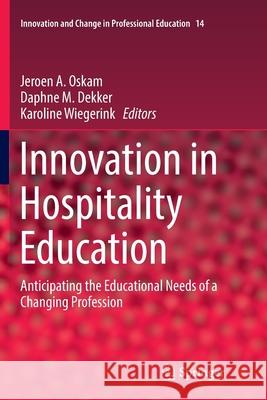Innovation in Hospitality Education: Anticipating the Educational Needs of a Changing Profession » książka
topmenu
Innovation in Hospitality Education: Anticipating the Educational Needs of a Changing Profession
ISBN-13: 9783319870670 / Angielski / Miękka / 2018 / 232 str.
Innovation in Hospitality Education: Anticipating the Educational Needs of a Changing Profession
ISBN-13: 9783319870670 / Angielski / Miękka / 2018 / 232 str.
cena 602,40
(netto: 573,71 VAT: 5%)
Najniższa cena z 30 dni: 578,30
(netto: 573,71 VAT: 5%)
Najniższa cena z 30 dni: 578,30
Termin realizacji zamówienia:
ok. 22 dni roboczych
Dostawa w 2026 r.
ok. 22 dni roboczych
Dostawa w 2026 r.
Darmowa dostawa!
Kategorie:
Kategorie BISAC:
Wydawca:
Springer
Seria wydawnicza:
Język:
Angielski
ISBN-13:
9783319870670
Rok wydania:
2018
Wydanie:
Softcover Repri
Ilość stron:
232
Waga:
0.35 kg
Wymiary:
23.39 x 15.6 x 1.35
Oprawa:
Miękka
Wolumenów:
01
Dodatkowe informacje:
Wydanie ilustrowane











